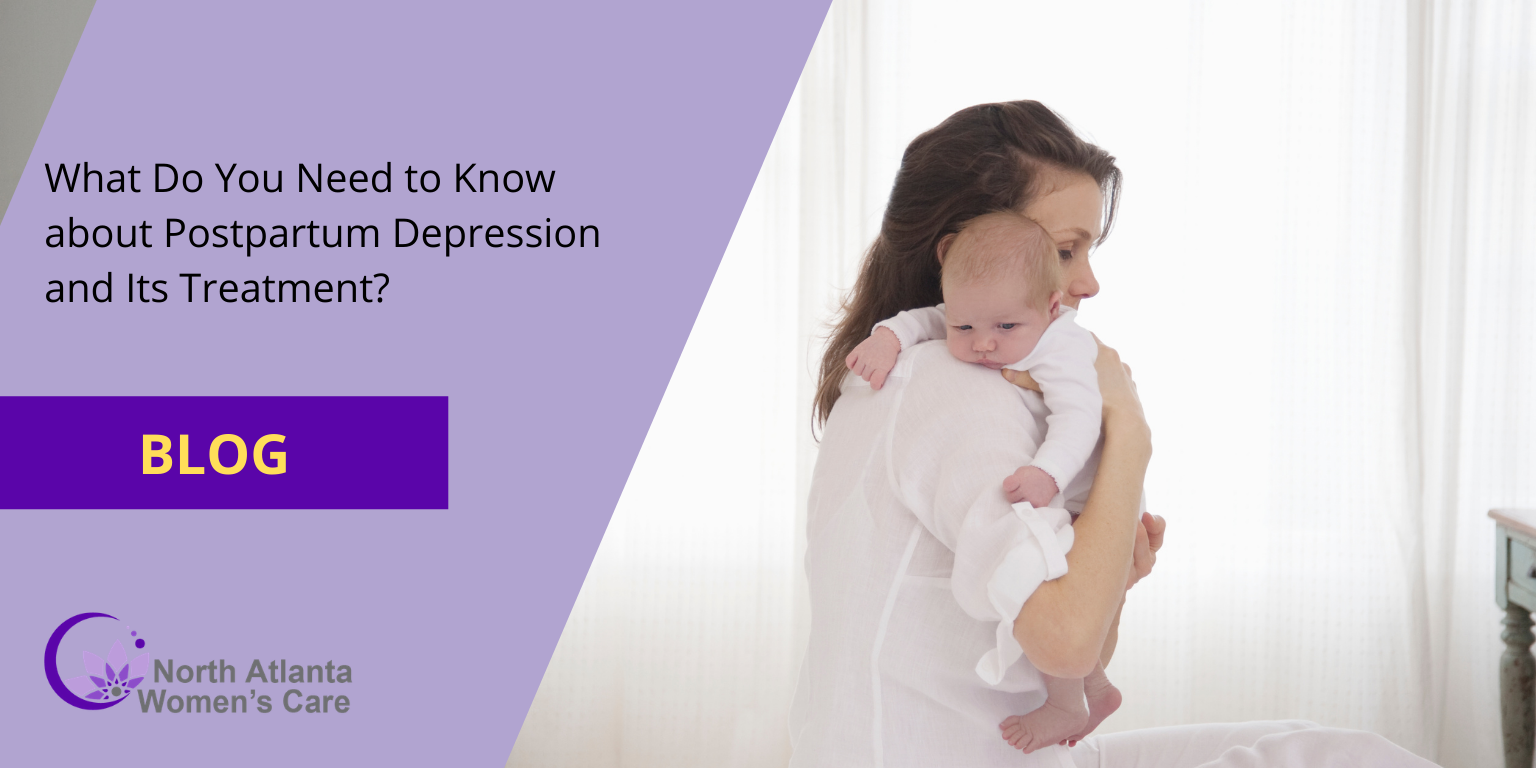What Do You Need to Know about Postpartum Depression and Its Treatment?

The birth of a baby can trigger multiple emotions of excitement, joy, fear, and also hormone changes. As a result, some mothers experience postpartum baby blues, which generally start within the first 2 to 3 days after delivery and may last up to two weeks with symptoms including mood swings, anxiety, and difficulty sleeping. However, some moms may experience a severe, longer-lasting form of depression called postpartum depression.
What Is Postpartum Depression?
Post childbirth, you might go through a type of depression known as Postpartum Depression. This can occur anytime between the initial three weeks to a year of giving birth. Remember that this is simply a complication of giving birth. CDC study proves that approximately 1 among every 7 moms experience postpartum depression. However, treatment can help manage the symptoms.
What Are Some Signs of Postpartum Depression?
Signs of postpartum depression include:
1. Your Baby Blues Persist
Having mood swings during the first two weeks after childbirth is common, but you should feel better after that. However, feeling hopeless, distressed, or gloomy after weeks might point towards a more serious situation than simply baby blues.
2. Decision-Making Difficulties
You may be too tired to think, be careless, or unable to decide whether to wake up, take a shower, change your baby’s diaper, etc. These might indicate initial signs of depression.
3. Thoughts of Sadness or Guilt
If you often have crying spells or feel miserable, depressed, or disheartened about being a mom, then this might also be an early symptom of depression.
3. Your Worry You Will Not Be a Good Mom
This thought is common among moms whose babies are premature, sick, or born with special needs. However, continuously feeling skeptical of your potential as a mother might be a potential symptom of postpartum depression.
4. Lack of Interest in Things You Enjoy
You may not be able to laugh at your favorite comedy, be affectionate with your partner, or enjoy your favorite foods.
5. Abnormal Sleep Patterns
If you cannot relax when your baby is asleep or are sleeping much more than usual, you could be exhibiting postpartum depression symptoms instead of simply forming a new sleep pattern.
6. Thoughts of Harming Yourself
You may get thoughts of suicide or hurting yourself or your baby. This might indicate postpartum depression. This might also be a probable sign of postpartum psychosis. It’s a rare, critical mental condition that might occur simultaneously with postpartum depression.
What Are Treatment Options for Postpartum Depression?
Postpartum depression treatment includes:
1. Treating Baby Blues
For the first two weeks, when you have persistent signs of baby blues, certain steps like getting adequate sleep, accepting help from other family members, connecting with new moms, and taking time for yourself can alleviate the symptoms. Additionally, avoid alcohol and any addictive drugs as they can worsen the situation.
2. Psychotherapy
This involves discussing your concerns with a psychologist, psychiatrist, or other mental health professionals to find better ways to manage your feelings, solve problems, set realistic goals, and respond to situations positively. Another option to mitigate postpartum depression symptoms is undergoing relationship therapy or family therapy sessions.
3. Antidepressants
Your doctor may prescribe antidepressants to treat your condition. However, inform your doctor if you are breastfeeding so that they can prescribe antidepressants that are safe for your baby. Remember, you should continue the treatment even after you start feeling better and consult with your doctor about the next steps.
When Should You See a Doctor?
Visit your doctor if your postpartum symptoms:
- Do not subside after two weeks or worsen
- Do not let you complete your routine tasks or take care of your baby
- Consist of thoughts about hurting yourself or your baby
If you suspect that you have symptoms of postpartum depression or are experiencing any signs of it, schedule an appointment with North Atlanta Women’s Care for further diagnosis and treatment.
Comments are closed

